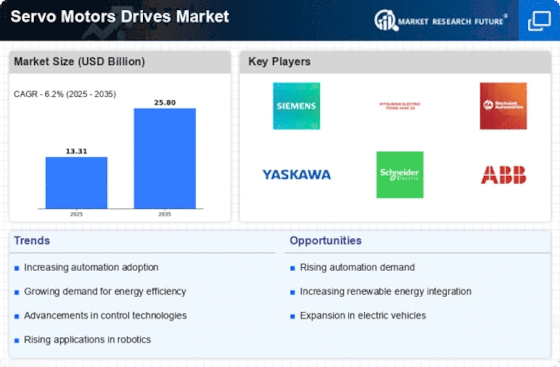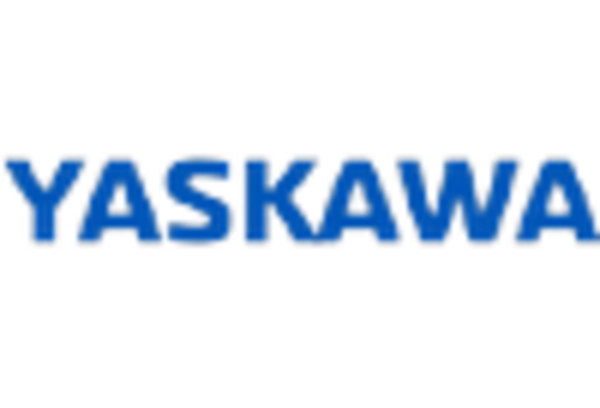Market Trends
Key Emerging Trends in the Servo Motors Drives Market
The Servo Motors Drives Market is characterized by several prominent market trends that are reshaping the industry landscape. One notable trend is the increasing adoption of Industry 4.0 principles, driving the integration of servo motors and drives into smart manufacturing processes. The demand for real-time data, connectivity, and advanced automation capabilities is pushing industries to invest in servo systems that align with the requirements of modern smart factories.
Energy efficiency is a prevailing trend in the servo motors drives market. As sustainability becomes a priority for industries worldwide, there is a growing emphasis on energy-efficient solutions. Servo systems that optimize power consumption while maintaining high performance are in high demand. Manufacturers are responding to this trend by developing servo motors and drives with improved energy efficiency, helping industries reduce their environmental footprint and operating costs.
The trend towards miniaturization and compact designs is influencing the servo motors drives market. Industries are increasingly demanding smaller and lighter components without compromising performance. This trend is particularly evident in applications such as robotics and portable devices, where compact servo systems are essential for achieving precise and agile motion control in confined spaces.
Collaborative robots, or cobots, represent a growing trend influencing the servo motors drives market. As collaborative robotic applications become more prevalent in various industries, there is a corresponding need for servo systems that enable safe and efficient collaboration between robots and human operators. Servo motors and drives with advanced safety features and seamless integration capabilities are key components of this evolving trend.
The integration of Artificial Intelligence (AI) and machine learning into servo systems is another notable trend. Advanced control algorithms and predictive maintenance features are being incorporated into servo motors and drives to enhance performance and reliability. This trend enables proactive maintenance, reducing downtime and optimizing the lifespan of servo systems, thereby gaining traction in the market.
Customization and modular designs are becoming increasingly important trends in the servo motors drives market. Industries are seeking flexible solutions that can be easily tailored to specific applications and requirements. Manufacturers are responding by offering modular servo systems with customizable features, allowing end-users to adapt the technology to their unique needs without the need for extensive reengineering.
The rise of the Internet of Things (IoT) is impacting the servo motors drives market as well. Connected servo systems that can communicate and share data with other devices and systems are gaining popularity. This trend facilitates remote monitoring, diagnostics, and predictive maintenance, contributing to improved overall efficiency and performance in various industrial applications.
A focus on user-friendly interfaces and intuitive programming is influencing the market. As industries face a shortage of skilled personnel, there is a growing demand for servo motors and drives with simplified programming interfaces that allow easier integration and operation. This trend supports a broader range of users, including those with limited programming expertise.
The aerospace and defense sector is witnessing a notable trend in the increased adoption of servo motors and drives for critical applications. The demand for precise control, reliability, and high-performance motion control systems is driving the aerospace and defense industries to invest in advanced servo technologies for applications such as unmanned aerial vehicles (UAVs), missile systems, and aerospace manufacturing processes.

















Leave a Comment